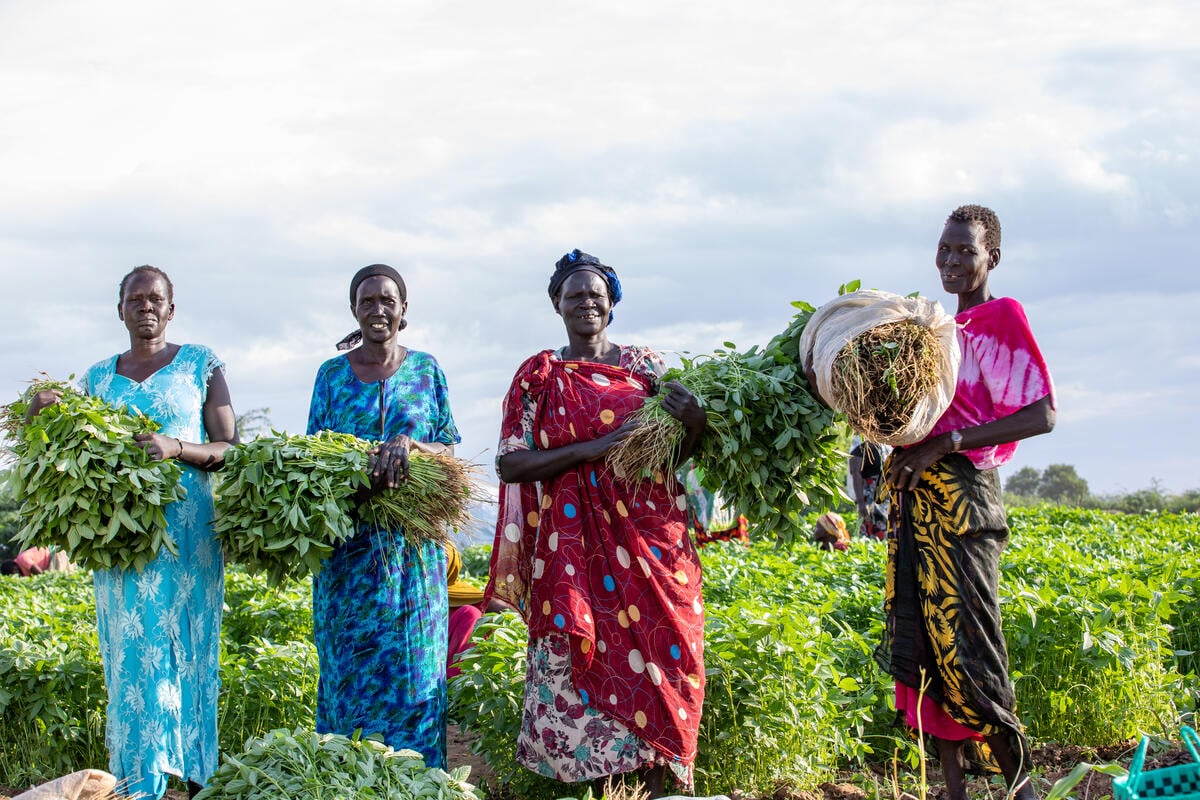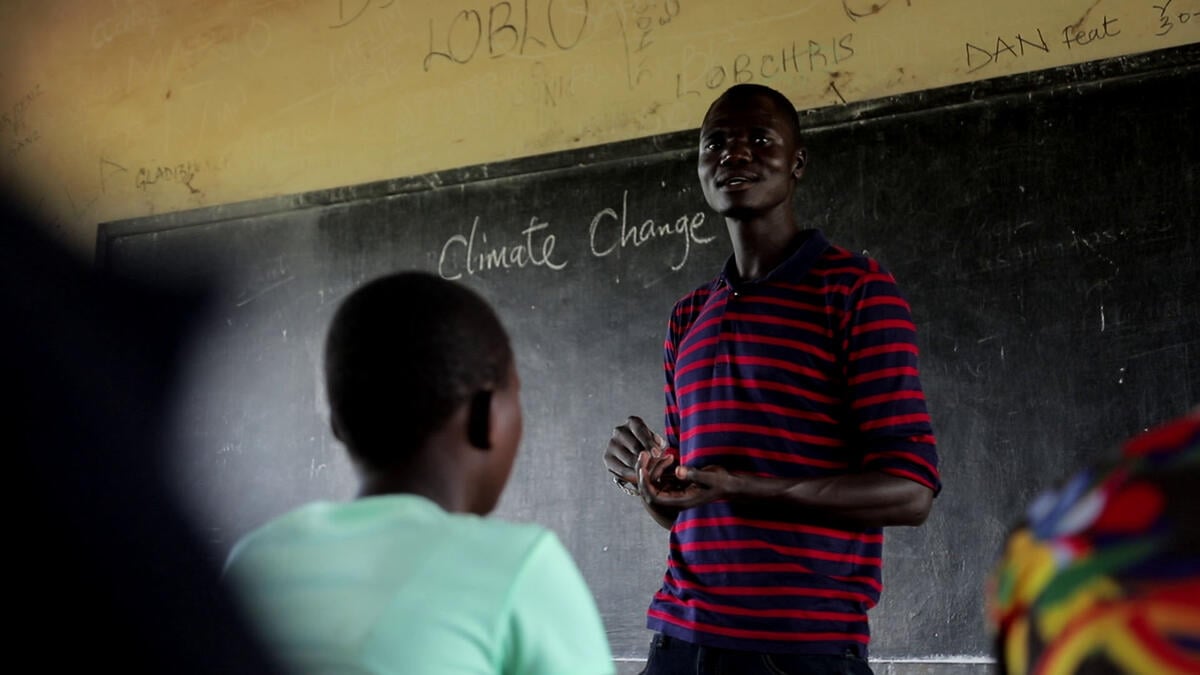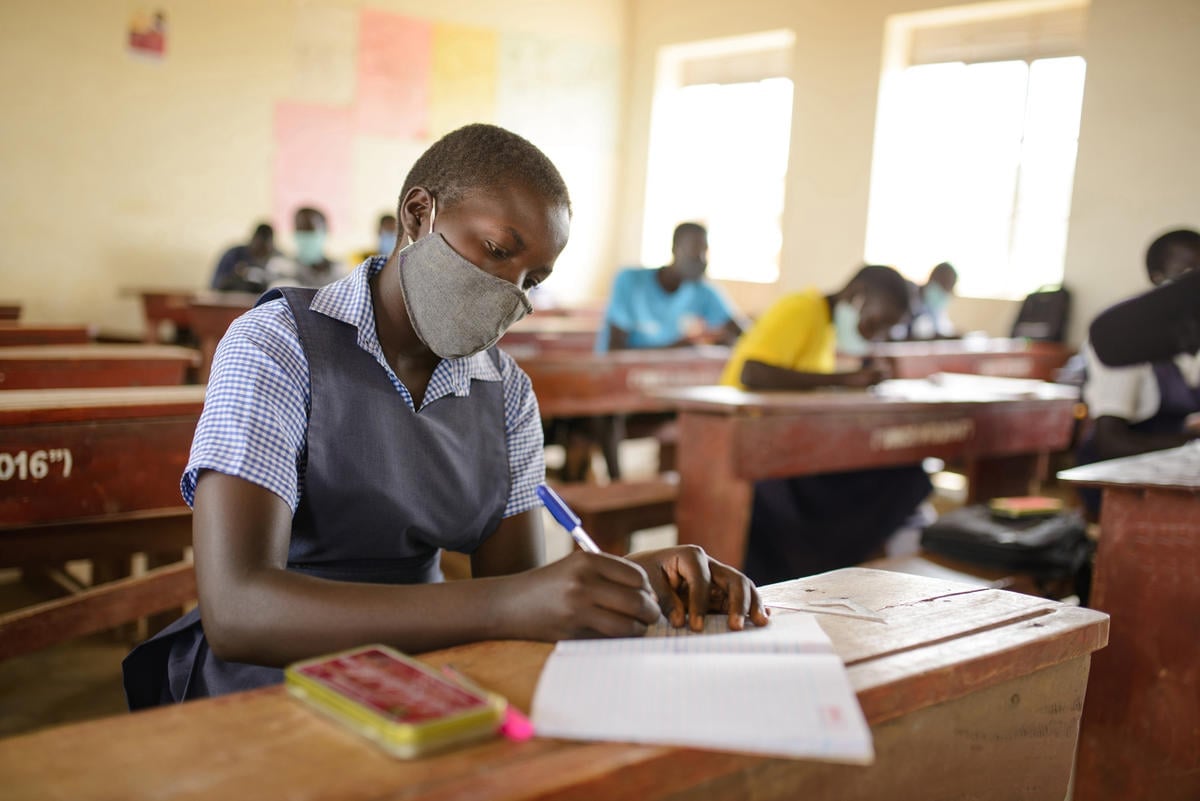230 Rwandan refugees returned home Sunday
230 Rwandan refugees returned home Sunday
Nearly 230 Rwandan refugees returned home Sunday from Uganda's Nakivale refugee settlement in south-western Mbarara district, bringing to 1,146 the number who have repatriated from Uganda this year following three convoys in late January.
The returning refugees travelled south in five UNHCR trucks together with the household goods they have accumulated during their time in exile. At the border crossing they were welcomed back by fellow Rwandans, and were visibly happy to be home. Many had not seen Rwanda in at least 10 years, while their children had been born in the settlements and were setting foot back home for the first time.
Two more convoys are scheduled to follow later this week carrying more than 600 refugees from Uganda's Oruchinga and Kyaka II camps. We expect that more than half the 3,000 Rwandan refugees who have so far registered for the UNHCR return programme this year will have repatriated by the weekend.
An estimated 2 million people fled Rwanda in the wake of the 1994 genocide. UNHCR believes there are still some 60,000 Rwandans outside the country in various African states, with Uganda hosting some 18,000. Earlier in January the governments of Rwanda and Uganda signed a tripartite agreement with UNHCR to facilitate all the refugees remaining in Uganda's three settlements.
Once they cross the border the returning refugees proceed to a transit camp at Byumba, 25 km from the Ugandan frontier that was built by the Rwandan government and which can register more than 500 people per day. This modern facility was built to speedily process the returnees back to national status within one day, after which each family will receive a repatriation package containing a basic kitchen set, plastic sheeting, blankets, jerry cans and soap.
The repatriation exercise will continue as long as refugees wish to return home from Uganda's Kyaka II, Nakivale and Oruchinga refugee settlements. A UNHCR-sponsored information campaign is keeping them abreast of safety conditions in Rwanda and urging them to register for an orderly and swift return home.
Eager to welcome back its refugees, the newly-elected government in Rwanda has signed similar repatriation agreements with nine other countries hosting its nationals. UNHCR has been promoting repatriation to Rwanda since the end of 2002. We plan to help some 40,000 Rwandans to go back to their country this year. Last year more than 22,700 returned with UNHCR assistance from various neighbouring countries.









